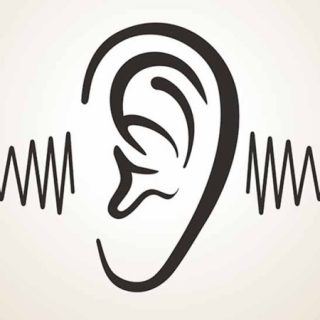“The difference between school and life? In school, you’re taught a lesson and given a test. In life, you’re given a test and taught a lesson.”
– Tom Bodett
“It is another Monday morning. Another school day dawns. Olufunke is jerked back to planet earth as the clock vibrates. Half awake, she mutters a few confused words, slams the snooze button, and repositions her body and head for another round of sleep. Ten minutes later, she is forced to stand up by her mum who helps her get ready for school. By 7:15 am, she is safely in the family car, on her way to school. Along the streets, she spots the students – some neatly clothed others shabbily dressed in school uniforms so large enough to become parachutes in the event of a mighty wind. Some of these kids are peddling sachet water, bottled water, soft drinks and others, provisions. Among them is Bayo, her classmate who usually hawks fresh fruits (before and after school) to help support his family’s finance and pay his school fees. He often appears at the school gate by 8:15 am to receive a regular dose of punishment for coming late to school.
Bayo, despite his family’s myriad difficulties, manages to do well in school. He ranks among the top 10 percent of his class. At night, he sleeps by 9:30 pm and wakes by 3 am to read with the candle light till 6 am. Thereafter, he helps with some chores and prepares to market his mother’s good from 7:15 am till 8 am. He often borrows books from other students because he cannot afford to buy most of the recommended text books. Olufunke is an average student who is addicted to excessive TV and finds it difficult to concentrate on her studies. Her parents provide all her needs, but she still grapples with indiscipline and self-satisfaction. At 15, she realizes the need to improve on her academic performance. Lately, she has found a helper and friend in Bayo, a benevolent, unassuming young boy who is always ready to help her with difficult subjects.”
Growing in life, we are bound to face challenges. This is regardless of our background. Many young people have been misled and have thus courted the toxic mentality that they can never succeed in life because of their family history and personal weakness. They have been made to let their personal weakness and circumstances dictate their direction and pace in life. You get from life what you give to it. Living a fulfilling life, the very exotic one that you dream of, requires that you make some very important decisions and apply certain truths in becoming what you want to become in achieving your goals. You need a plan – just like you see in war films and games of chess, it is a classic application of strategy. The key word here is strategy.
A strategy is a carefully devised plan of action to achieve a goal, or the art of developing or carrying out that plan. Life strategies are those plans you come up with and implement in order to obtain the things that matters to you in life. For you to discover what you want, it would be really helpful if you try to uncover those things you do not want. Knowing what you don’t want in life is important because that make it easier to identify the things you want to eliminate in life. In this piece, you will learn some basic truths you can imbibe in everyday life. Whenever you need a reality check, guidance or encouragement, turn to these simple truths. They won’t fail you.
“The indispensable first step to getting the things that you want out of life is this. Decide what you want.”
– Ben Stein
In life, you either get it or don’t. You can choose to be the one who gets the ultimate prize. The world works as a system. If you learn about the system by careful observation, you will have an advantage over everybody else. It is cool to have a better life and work towards getting one. Learning and using life laws will help you become one who ‘gets it’. Today, we enjoy a lot of wonderful things because some people craved better conditions, not just for themselves, but also for the world around them. Albert Einstein, Henry Ford, John D. Rockefeller, and Mother Theresa knew want they wanted in life and went all in to make impact on their world.
You create your own experience. You are responsible for choosing the statement you make to the world with your attitude and appearance. When you choose that statement, you automatically choose how the world will respond to you. If you don’t like the way people treat you, you can change that by changing the statement you make to them. What role do you play? Is it getting you the result you want? You and you alone, are responsible for the experiences you have in life. There is also the need for you to realize that people do what works. Success in life is often measured by results! If you are continually doing something you don’t like, you will never stop doing them. If people are treating you in a way that you don’t like, find out what their payoff is and eliminate it. If you do, they will change their approach to you. Ignoring the payoffs of your own negative behavior will cost you the long run. Remember, you cannot change what you do not acknowledge. If you don’t acknowledge that something is bothering you, it will never change. Don’t spoil your chances for success by denying your problems. Peer pressure may be an issue that you need to acknowledge and deal with. It is often easy, but less rewarding to stay in a comfort zone-doing what you are just comfortable with, without stretching yourself to explore bigger possibilities. Break out of the comfort zone and you will be rewarded for it. This is because life rewards action. If you do nothing, you will have nothing. Take you action today so that you don’t miss your window of opportunity. Make a decision to take reasonable, responsible risks. If you never try, you will never succeed. Don’t give up if you don’t succeed immediately. Eventually you will succeed.
“You can complain because roses have thorns, or you can rejoice because thorns have roses.”
– Ziggy
Another truth often overlooked is that there is no reality, only perception. Your emotions are based on your perception of what is happening to you. If you perceive something as scary, then to you it is scary. Your perceptions of the world are based on the lenses through which you see things. You can, however, change you lenses. You are the only person who can change your perception of yourself and your life. Your perception is your reality! Life is managed, not cured. You will encounter problems for the rest of your life, but there will be nothing you can’t manage. You are you are your own life manager, and successful management is an acquired skill. Replace short-term willpower with a long-term programme. See your life management as a major personal project. Develop a specific goal plan, follow it through, and you will be successful.
People ‘size you up’ based on how you present yourself to the world. They test you to see how you will allow them to treat you. Basically, we teach people how to treat us. You can retrain people to treat you better. Treat yourself well so that others will be motivated to do the same. Have you ever felt so bad-infuriated, worried and unhappy because you found it difficult to forgive someone that has offended you? There is power in forgiveness! You need to realize the emotional wounds, like physical wounds on our bodies, leave scars on one’s soul. Withdrawing emotionally can affect you physically. Holding on to previous hurts poisons all potential relationships. Forgiveness is a choice that you are entitled to.
Finally, whatever you desire in life, you have to name it before you can claim it. You must be able to describe specifically what it is that you want. Winners in life know exactly what they want. Do you? Don’t confuse wanting an object or an event with the feelings with the feelings that come with an object or an event. If you don’t know exactly want you want, you can’t know if what you are doing is moving closer to, or further away from, your finish line. Be prepared to step up and claim the things that you want. They are there to be taken only because you worked to put them there. You can be a winner: the choice is yours!
GUIDE TO DEVELOPING LIFE SKILLS
Picture the world as large as a vast ocean, awesome in its beauty and frightening in its power. Your parents are the captain (or co-captains) of a family-owned ship that is traversing the waters. The crew (you) have been with the co-captain for over a decade. Within a short time, you will be left to pilot your own ship. The ship in this metaphor is your Home, the crew is your feelings. Do you feel like you’re always running late? Managing time will well is evident, for example, when you are able to awake on time to meet the school bus, arrive promptly for appointments, and finish school projects before their deadlines. A deficiency in time management may be caused by any number of factors beyond simple “laziness”. The cause may be physical, emotional or neurological. Here are some tips of taking control of your time and organizing your time.
Make a “To Do” list Every Day: put things that are most important at the top and do them first. If it’s easier use a planner to track all your tasks. And don’t forget to reward yourself for your accomplishments.
Use Spare Minutes Wisely: get some reading done on the bus ride home from school, for example, and you’ll kill two birds with one stone.
Find the Right Time: you’ll work more efficiently if you figure out when you do your best work. For examples, if your brain handles math better in the afternoon, don’t wait to do it late at night.
Review Your Notes Every Day: You’ll reinforce what you’ve learned, so you need less time to study. You’ll also be ready if your teacher calls on you or gives you a pop quiz.
Get a Good Night’s Sleep: Running on empty makes the say seems longer and you tasks seem more difficult.
Communicate Your Schedule to Others: If phone calls are proving to be distraction, tell your friends that you take social calls from 7:00 pm to 8:00 pm it may sound silly but it helps.
Become a Master of your Time: Figure out how much free time you have each week. Give yourself a time budget and plan your activities accordingly.
Don’t Waste Time Worrying: Have you ever wasted an entire evening by worrying about something you’re supposed to be doing? Was it worth it? Instead of agonizing and procrastinating, just do it.
Don’t Push Yourself Way Too Much: Setting goals that are unrealistic sets you up for failure. While it’s good to set high goals for yourself, be sure not to over do it. Set goals that are difficult but yet reachable. Consider these tips, but personalize your habits so they reach you. If you set priorities that reach your lifestyle, you’ll have better chance of achieving your goals.
Stress Management: “Stress” is defined as the way our body and our minds react to life changes. Since adolescence is a period of significant changes, including physical, emotion’ social, academic and family. The co-captains are your parents in charge of preparing you for independence. What abilities will you require from adolescence to adulthood in order to sail the waters of the world safely? You will need the skills that are encapsulated by the acronym, “STORMS”.
- S – Self-care
- T – Time management
- O – Organization and cleanliness
- R – Relationships
- M – Money and finance
- S – Stress management
Self-Care: By the end of adolescence, you would start taking care of yourself seriously. You would know when you need a break, when you need a rest, what to get worked-up about and what to get rid of as well as knowing when its time to take care of yourself for yourself! One of the things we have to do to feel better in life is to take good care of ourselves. We are too busy in school and after-school activities, taking care of others, etc. that we neglect our physical, emotional and social needs. We really have to try to pay more attention to ourselves. Developing and growing from childhood to teens is probably the most difficult time of life. Then alarming pace of the growth when rapid physical and physiological are taking place can create confusion in teens’ minds. Looking good or bad in later years has to be taken care of now. Below are some tips for self care:
Hygiene: Keeping your body clean is an important part of keeping you healthy and helping you to feel good about yourself. Caring about the way you look is important to your self esteem (what you think about yourself). By the way, you don’t need to wear the latest designer clothing to look good! They are other things you can do which are much more important to your “image”. Have you ever walked into a classroom full of kids and all the windows are closed? Phew!! According to the experts young people may sweat but they don’t start having body odour until they reach puberty. That’s when special sweat glands under and around the genitals roar into full production pouring out sweat which smells! Changing under clothes is advisable and ensuring clean breath is important.
Food & Nutrition: A sensible diet includes fruits, green and vegetables, and milk product. Keep nutrition in your mind and eat right quantities. Leave the dinner table when you can still eat another plate of food. Teens’ digestive system will function better. Drink plenty of water at least 8-10 glasses a day, to eliminate toxins from the body.
Moderate Exercise: A regular routine of moderate exercise for 30-40 minutes is enough to keep the body beautiful, supple and active, jogging is a natural exercise, good for teens and all. A brisk of jogging of 30-40 minutes daily can fill you with vigor and vitality.
Mental Attitude: A teens thoughts can be read from the expressions of his or her face. So, to keep a check on thoughts and tension away learn to be cool and collected because anger, worries result in blemishes and out break of rashes. Teenage is the time, for preparation. Enlarge your skill, beauty and appearance to acquire that self-confidence with which you will be facing the years ahead.
Time Management: One thing that accompanies young people to secondary school is the increase of independent time and this is a problem for most students who severally extracurricular activities that they attend and lots of homework on top of them. Does it seem like there’s never enough time in the day to get everything done?
Organization: lack of organization fails most people in life, more often at critical junctures. If you are well-organized the tide of problems can push you to a new opportunity instead of failure. Like a master chess player you are able to organize your steps in life in such a way it can lead you to success. A disorganized person is mostly an unlucky person whatever the field may be. During childhood, you’ve probably spent many hours with your parents teaching you to pick up your clothes and putting your toys away. All successful people have a habit of organizing their work. You must spare at least one hour every month to examine your progress in life through answering these questions:
- What are your goals in life?
- What are you able to give in return to achieve those goals?
- Are you doing something every day to fulfill your dreams?
- How much time did you waste last month?
- What are you going to do to plug the wastage of time?
- What improvement do you need to move faster than your goals?
- How much will you spare in the coming month to study more in the field if your interest?
Relationships: Healthy relationships are fun and make you feel good about yourself. You can have a healthy relationship with anyone in your life, including your family, friends. Relationships take time, energy and care to make them healthy. The relationships that you make in your teen years will be a special part of your life and will teach some important lessons about who you are. Below some qualities of a healthy relationship:
Communication and Sharing: The most important part of any healthy relationship is being able to talk and listen to one another. You and the other person can figure out what your common interests are. You can share your feelings with the other person and sure that they will be there to listen and support you. In healthy relationships, people don’t lie. Communication is based on honesty and trust. By listening carefully and sharing your thoughts and feeling with another person, you show them that they are an important part of your life.
Respect and Trust: In healthy relationships, you learn to respect and trust people in your life. Disagreements may still happen, but you learn to stay calm and talk about how you feel. Talking calmly helps you to understand the real reason for not getting along, and it much easier to figure out how to fix it. In healthy relationships, working through disagreement often makes relationship stronger. In healthy relationship, people respect each other for who they are. This include respecting and listening to yourself and your feelings so that you can set boundaries and feel comfortable. You will find that you learn to understand experiences and feelings of others and as well having them understand your feelings and experiences.
Money and Finance: Money and finance planning include budgeting, expenses and saving finance among others. Understanding how each of these work together and affect each other is important for laying the ground work for a solid finance foundation for you.
Saving: At the very basic level of personal finance you are dealing with money; you make money and then you spend that money. You can accumulate a fortune through opening a saving account with any bank and acquire money from birthday and holiday gifts, weekly allowances or payment for completing chores are paid into the opened account for future use.
Budgeting: As a teenager, you are faced with spending money on something, you think about it and realized that by spending that money, you will not be able to spend that money on something else. When you create budget, you begin to see a clear picture of how much money you have, what you spend it on, and how much, if any is left over. When you can clearly see where your money is going, you can then budget appropriately so your money is going where it should.
Cutting Expenses: After you have successfully created a budget, you’ll have a much better understanding of where your money goes band where you can possibly trim expenses. For many people, this is as simple as cutting back on some of the little things that can add up.
Stress Management: Teens are under more stress than at any time in life. It is very important for teens to learn how to handle stress, as long-term build-up of stress that is not handled effectively may lead to problems, including physical illness, anxiety or depression, which may lead to a faster heart rate, increase blood flow, shallow breathing, a sense of dread and a desire to escape. However, teens can teach themselves to perceive life challenges as being their control and can even change their body’s reaction to such events, promoting a lower heart rate, deeper breathing, clearer thinking and feelings of calmness and control. Stress management is an all-purpose skill that is useful in every are of life. But adolescence is a time of tremendous change, both internal and external. Stress management involves two crucial steps:
- Awareness: Awareness of signs of stress overload; e.g., changes in sleeping or eating patterns, avoidance or withdrawal from friends and family, or unexplained sadness or depression.
- Management: An ability to lower the stress level by means of healthy coping mechanism, such as exercise, relaxation techniques and supportive relationships.
There are many stress management skills that promote the relaxation response. Many adolescent cope well with the stress in their lives, especially when they have close friends who can serve as confidants. However, even friends may not suffice if the pressure rises above a threshold that they can not handle. Stress management skills for teens include:
- Taking deep breaths accompanied by thoughts of being in control (“I can handle this”)
- Progressive muscle relaxation (repeatedly tensing and relaxing large muscles of the body)
- Setting small goals and breaking tasks into smaller manageable chunks
- Exercising and eating regular meals, and avoiding excessive caffeine
- Focusing on things you can control and letting go of things you can not control
- Rehearsing and practicing feared situation (e.g., practicing public speaking)
- Talking about problems with others, including parents, older adults and friends
- Lowering unrealistic expectations
- Scheduling breaks and enjoyable activities, such as music, art, sports, socializing
- Accepting yourself as you are and identifying unique strengths and building on them, but realizing no one is perfect!
References:
- Earl Hipp, Fighting Invisible Tigers: A Stress Management Guide for Teens
- Encarta Dictionary, 2008
- Jay Phillip McGraw, Life Strategies for Teens, Simon & Schuster, New York, 2000
- Jay Phillip McGraw, Life Strategies for Teens Workbook, Simon &Schuster, New York, 2001
- Kathy Peel, Family for Life, McGraw-Hill, New York, 2003)







You must be logged in to post a comment.